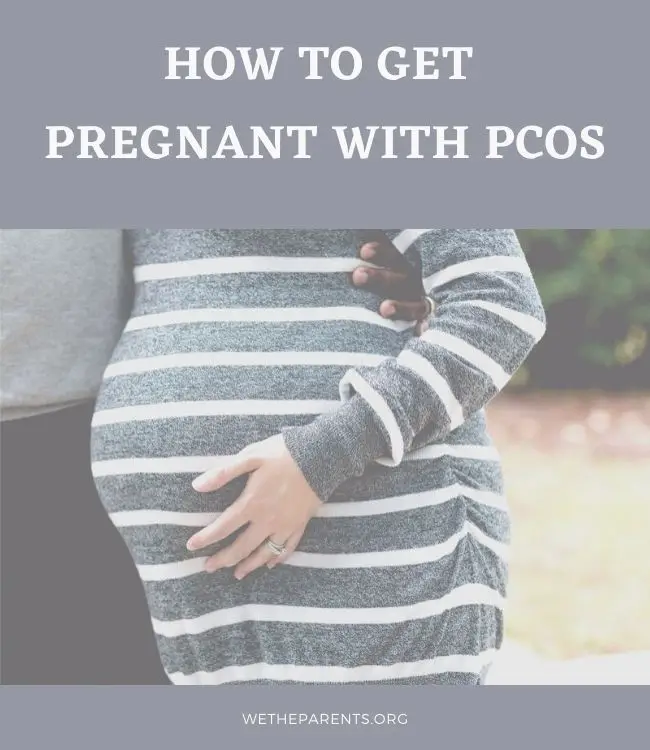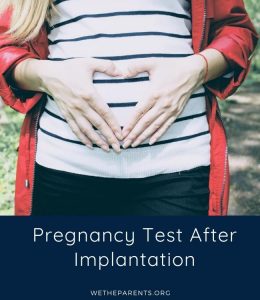PCOS (polycystic ovarian syndrome) can make it difficult for women of childbearing age to get pregnant. While it can sometimes be a struggle, conception is still possible for those with this complex endocrine disorder.
If you suffer from PCOS, here are some simple, impactful steps that you can take to increase your chances of getting a positive pregnancy test.
In this article:
What is Polycystic Ovarian Syndrome (PCOS)?
Polycystic ovary syndrome (PCOS) is a hormonal disorder that’s marked by irregular or infrequent menstrual periods. 1Watson, S. (2019). Polycystic Ovary Syndrome (PCOS): Symptoms, Causes, and Treatment.
healthline.com
Women with PCOS tend to have higher than usual levels of male hormones, or androgens. The syndrome typically results in the development of multiple ovarian cysts.
These cysts are fluid-filled pockets located in the walls of the ovaries. They disrupt, and sometimes even stop, the release of eggs.
According to the latest statistics, PCOS currently affects 1 in 10 women of childbearing age. 2Norman, R. J., Dewailly, D., Legro, R. S., & Hickey, T. E. (2007).Polycystic ovary syndrome. The Lancet, 370(9588), 685-697. womenshealth.gov
Although one of the leading causes of infertility, it is, fortunately, a treatable condition.
What are the chances of getting pregnant with PCOS?
There are no clear statistics when calculating the fertility rates of women with PCOS. After all, every women’s situation is different. A women’s hormone levels, age, weight, and BMI all contribute to her chances of fertility.
Studies have shown that about 30% of women with PCOS receiving IVF treatment, and 26% of women taking Clomid become pregnant.
Always speak with your doctor before trying a particular fertility treatment.
Keep in mind that PCOS interferes with your ability to grow and release eggs. However, it cannot singlehandedly stop you from getting pregnant.
Why treat your PCOS?
PCOS can seriously impact a woman’s health and wellbeing. Common PCOS symptoms include:3Polycystic ovary syndrome
nhs.uk/conditions/polycystic-ovary-syndrome-pcos/symptoms/
- Irregular, or completely absent, menstrual periods
- Weight gain
- Thinning hair on head
- Unusual or excessive hair growth on the face, chest, etc.
- Oily or acne-covered skin
- Fertility issues
PCOS may also result in several serious health issues, including:
- Diabetes
- Cardiovascular problems
- Depression
- Endometrial cancer
Since PCOS inhibits fertility, many women wait until they are trying to conceive before attempting to manage this illness. Keep in mind that there are also PCOS treatments for women who are not looking to get pregnant.
What causes Polycystic Ovarian Syndrome?
Researchers have yet to pinpoint an exact cause of PCOS. However, they have found a correlation between the syndrome and excess insulin resistance, obesity, inflammation, and hormone production issues. 4About Polycystic Ovarian Syndrome (PCOS)
crh.ucsf.edu/pcos-research#:~:text=The%20exact%20cause%20of%20PCOS,vary%20from%20woman%20to%20woman
Research has also discovered that PCOS runs in families. Many health professionals suspect that it is a genetic issue. Women with PCOS have imbalanced hormones, while most have higher than usual androgen levels.
How is PCOS diagnosed?
While there is no test you can take to diagnose PCOS, doctors can perform various tests and talk with you about your symptoms and medical history to determine if you suffer from PCOS.
Does PCOS cause problems during pregnancy?
Yes, in addition to making conception more difficult, PCOS can cause several pregnancy-related complications.
Women with PCOS are more likely to experience miscarriages, preeclampsia, gestational diabetes, premature birth, and cesarean sections.
The best way to prevent these circumstances is to eat healthily and exercise regularly up to and during your pregnancy.
It is also suggested that women with PCOS who are planning pregnancy have screening for pregestational diabetes. At the first prenatal visit, your provider can test you for diabetes.
Diet, exercise, and health for PCOS
Weight gain and obesity are proven to accelerate the effects of PCOS.5Barber, T. M., Hanson, P., Weickert, M. O., & Franks, S. (2019). Obesity and polycystic ovary syndrome: implications for pathogenesis and novel management strategies.Clinical Medicine Insights: Reproductive Health, 13, 1179558119874042.
ncbi.nlm.nih.gov
On the other hand, PCOS itself can accelerate weight gain and obesity. Consequently, diet and exercise are crucial lifestyle changes women must make to increase their chances of getting pregnant with PCOS.
Weight loss
Many women with PCOS suffer from insulin resistance which, in turn, typically suppresses a woman’s metabolism. When left untreated, it can lead to weight gain and even obesity.
Eventually, weight gain can cause an interruption in a woman’s ovulation while also impacting a woman’s ability to produce estrogen and, therefore, ovulate.
With all of that said, weight loss is strongly recommended when combating menstrual disorders. If you’re looking to shed pounds, you might consider:
- Focus your carb intake on complex carbs with high fiber
- Use the glycemic index (GI) to determine the best foods for you
- Increasing your fiber intake
- Increasing your lean protein intake
- Eating healthy fats
- Limiting your portions
- Reducing simple carbohydrates and sugars
- Replacing higher sugar options/brands with lower sugar ones
- Opting for more fruits and veggies
Research has found that diet and exercise increase PCOS women’s chances of fertility. There is no one-size-fits-all diet for women with PCOS. Instead, look to eat whole foods with high nutritious value.
Have your weight and body mass index (BMI) measured by your doctor. These calculations will show you how much weight you need to lose (or gain) before you reach your ideal body composition.
Additionally, have your doctor check your blood sugar levels to determine if you are at risk for developing Type 2 Diabetes.
Editor’s note
Many women with PCOS find it difficult to lose weight. If you’re trying to lose weight, find a way that works with your lifestyle without missing out on important foods or nutrients.
Exercise
Exercise is another excellent way to kickstart your body’s metabolism and shed those extra pounds. Keep in mind that weight loss tends to be more difficult for women with PCOS.
Vigorous exercise lasting between 30 to 60 minutes per day has been shown to assist with decreased infertility.6DHakimi, O., & Cameron, L. C. (2017). Effect of exercise on ovulation: a systematic review.Sports Medicine, 47(8), 1555-1567.
pringer.com
Brisk walks, jogs, weight training, and other low-impact forms of exercise are excellent options for women trying to conceive. Find physical activities that you enjoy and fit them into your lifestyle.
Sleep
Studies show that sleep disturbances and disorders are common in women with PCOS. 7Fernandez, R. C., Moore, V. M., Van Ryswyk, E. M., Varcoe, T. J., Rodgers, R. J., March, W. A., … & Davies, M. J. (2018). 8Sleep disturbances in women with polycystic ovary syndrome: prevalence, pathophysiology, impact and management strategies. Nature and science of sleep, 10, 45.
ncbi.nlm.nih.govTalk with your doctor if you are experiencing sleep interruptions, insomnia, or restlessness.
Stress
Stress is yet another factor that may put a woman at a higher risk in developing PCOS.9Rosenfield, R. L., & Ehrmann, D. A. (2016).The pathogenesis of polycystic ovary syndrome (PCOS): the hypothesis of PCOS as functional ovarian hyperandrogenism revisited. Endocrine reviews, 37(5), 467-520.
nwhn.org Anxiety and depression rates are also higher among women with PCOS. Changes in diet and exercise may increase your endorphins, lessening the effects of anxiety and depression.
Editor’s note
Mindfulness and stress management can decrease perceived stress and may improve experience of symptoms related to PCOS.
Fertility medications
There are several prescription and over-the-counter medications that women can take to manage their PCOS symptoms and increase their fertility rate. Here are a few of the more common treatments.
Metformin
Metformin is a prescription Type 2 diabetes drug that treats polycystic ovary syndrome.10Johnson, N. P. (2014). Metformin use in women with polycystic ovary syndrome. Annals of translational medicine, 2(6).
ncbi.nlm.nih.gov Metformin’s key role is to manage a woman’s insulin levels and has shown high rates of success when used in conjunction with diet and exercise.
Clomid
Clomid is a common fertility drug used to treat PCOS. It is called Serophene or clomiphene citrate (CC) and requires a prescription.
Research shows that the vast majority of Clomid interventions result in ovulation.11Budinetz, T. H., Benadiva, C. A., Griffin, D. W., Engmann, L. L., Nulsen, J. C., & DiLuigi, A. J. (2015).Ovulation rate and cycle characteristics in a subsequent clomiphene citrate cycle after stair-step protocol. Fertility and Sterility, 103(3), 675-679.
fertstert.org This drug works by stimulating the release of certain reproductive hormones. Success rates vary depending on the woman’s age.
Letrozole
Letrozole is a breast cancer treatment that has gained notoriety as a PCOS treatment. Letrozole suppresses a women’s estrogen levels.
Over 60% of Letrozole users have reported successful ovulation, while 14.7% have become pregnant. 12Guang, H. J., Li, F., & Shi, J. (2018).Letrozole for patients with polycystic ovary syndrome: A retrospective study. Medicine, 97(44).
ncbi.nlm.nih.gov
Recently, it has become a popular alternative to Clomid.
Gonadotropin therapy
Gonadotropin therapy consists of follicle-stimulating hormone [FSH] injections. Gonadotropin has been proven to induce ovulation in women with polycystic ovaries.
Intrauterine Insemination (IUI)
During intrauterine insemination (IUI), sperm is placed directly inside a woman’s uterus. This treatment increases a woman’s chance of falling pregnant. It costs less than IVF and other fertility treatments.
Birth control
While birth control prevents pregnancy, it is a common pre-fertility treatment strategy. Combination pills help balance a woman’s levels of estrogen and testosterone.
Therefore, it is not unusual for a doctor to prescribe birth control to a woman who is about to embark on IVF or IUI treatments.
Laparoscopic Ovarian Drilling (LOD)
Laparoscopic ovarian drilling (LOD) is a surgical treatment that may help some women with PCOS. During this treatment, small sections of the ovaries are damaged. Up to 50% of patients fall pregnant after the procedure. 13Laparoscopic Ovarian Drilling (Ovarian Diathermy) for PCOS
uwhealth.org/healthwise/article/tw9171#tw9171-Bib
IVF
IVF (In vitro fertilization) is a popular fertility treatment for women with PCOS. During IVF, a woman’s eggs are harvested from her body and fertilized.
After successful fertilization, the fertilized egg, or embryo, can be transferred to the woman’s uterus. Patients then await the results of positive implantation.
The success rate of IVF treatments on patients with PCOS is around 75%. 14Is IVF a real solution for infertility caused by PCOS – Polycystic Ovary Syndrome?
myivfanswers.com/video/pcos-ivf/
Natural PCOS fertility treatments
There are also some evidence-backed natural treatments for PCOS. The following vitamins and minerals may take you one step closer to that positive pregnancy test. Always speak with your doctor before trying a particular fertility treatment.
Chromium
Chromium is a mineral that is proven to decrease fasting blood sugar and insulin levels in clomiphene citrate-resistant women with PCOS.15Amooee, S., Parsanezhad, M. E., Shirazi, M. R., Alborzi, S., & Samsami, A. (2013). Metformin versus chromium picolinate in clomiphene citrate-resistant patients with PCOs: A double-blind randomized clinical trial. Iranian journal of reproductive medicine, 11(8), 611.
cbi.nlm.nih.gov One study suggests that chromium picolinate (the supplement of chromium) is just as effective as the pharmaceutical drug, metformin. With that said, this drug is not proven to change or improve women’s hormone levels.
Omega-3
Studies show that Omega-3 fatty acids reduce women’s resistance to insulin, decrease their testosterone concentrations, and increase their chances of conception.16Yang, K., Zeng, L., Bao, T., & Ge, J. (2018).Effectiveness of omega-3 fatty acid for polycystic ovary syndrome: a systematic review and meta-analysis. Reproductive Biology and Endocrinology, 16(1), 27.
ncbi.nlm.nih.gov
Magnesium
Women with PCOS could also benefit from taking a daily dose of magnesium. Magnesium has been proven to lower blood pressure while increasing insulin resistance.
Folate
Folate is yet another supplement that’s proven to decrease a woman’s insulin resistance, decreasing their cholesterol levels.
Inositol
Inositol is yet another over-the-counter supplement that may help improve your insulin resistance.
Ovulation calculator
Use an ovulation calculator to track your most fertile days. Generally speaking, women can benefit from knowing these days. There are usually six days during your menstrual period when you can get pregnant.
Wrapping up
Women should talk with their healthcare provider before considering pregnancy. Healthcare professionals are the only ones qualified to assess a woman’s fertility issues.
If you suffer from irregular periods or have tried and failed to get pregnant over 12 months, there’s a possibility that you are suffering from PCOS.
You may want to speak with a fertility expert to determine your best course of action, while it always helps to make positive, healthy changes to your lifestyle.









